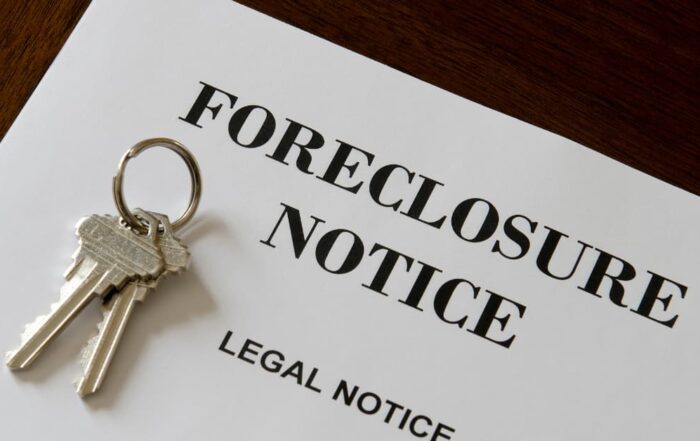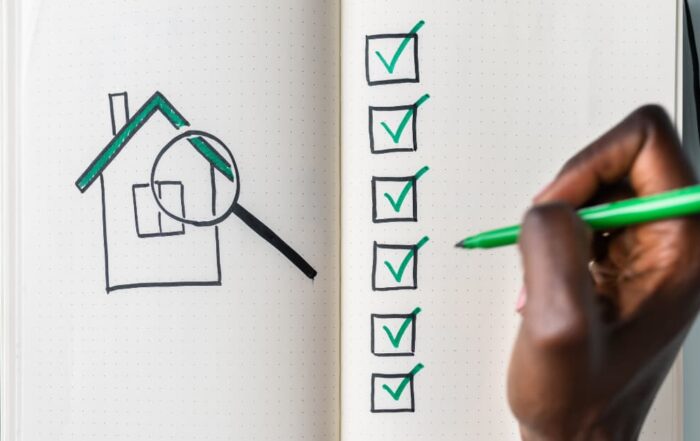Construction Defects Attorney: Your Guide to Legal Protection and Recovery
When builders cut corners or ignore industry standards, the consequences can be devastating - both financially and structurally. As a [...]
Construction Defects: Your Legal Rights and Next Steps in Texas
Stop. Stop accepting subpar construction work that puts your investment at risk. If you've discovered cracks in your foundation, water [...]
Post-Foreclosure Rights in Texas: What Homeowners Must Know After Losing Their Property
Stop. Stop believing your rights disappear the moment foreclosure completes in Texas. As someone who has guided hundreds of Texas [...]
When Should You Hire a Business Litigation Attorney in Texas?
Stop. Stop thinking business litigation won't happen to you. As a business litigation attorney in Texas who's handled over 1,000 [...]
Contractor Breach of Contract: Your Legal Rights When Construction Goes Wrong
Contractor breach of contract occurs when a construction professional fails to fulfill their obligations as outlined in your written agreement, [...]
Real Estate Joint Venture Agreements: Key Steps for Investors
Real Estate Joint Venture Agreements are legally binding contracts that allow multiple investors to pool their resources, expertise, and capital [...]
How to Put a Lien on a Property in Texas: Complete Guide
To put a lien on a property in Texas, you must gather essential project and property information, send pre-lien notices [...]
Small Business Litigation Guide for Construction and Real Estate
Business litigation for small businesses can threaten everything you've built, especially in construction and real estate, where complex contracts and [...]
Essential Ways an Austin Construction Attorney Protects Your Investment
Hiring an Austin construction attorney is crucial when undertaking projects that represent significant investments of time, money, and resources. Whether [...]
Buying Commercial Property: A Complete Guide for Investors
Looking to build serious wealth through real estate? Commercial property investment offers annual returns of 9-12% compared to residential properties' [...]
Why You Need a Real Estate Attorney in Austin – Your Essential Guide to Mastering Property Transactions
Austin's real estate market continues to boom, with property values climbing and transactions becoming increasingly complex. Hiring a qualified real [...]
Expert Austin Business Litigation Attorney: Guaranteed Success for Your Business
Business litigation represents one of the most significant threats to your company's financial health and reputation. Hiring an expert Austin [...]
What Is an Easement Appurtenant? A Complete Guide for Property Owners
An easement appurtenant is a legal right that allows one property owner to use a portion of a neighboring property [...]
Texas Intestate Succession: Complete Guide to Inheritance Without a Will
When someone dies without a will in Texas, their estate doesn't simply vanish. It follows a strict legal roadmap called [...]
Understanding Alkali-Silica Reaction (ASR): Essential Guide for Pool Construction
Alkali-Silica Reaction (ASR) represents a significant challenge in pool construction, potentially compromising structural integrity and leading to costly repairs. This [...]
TOD Deed in Texas: Your Complete Guide to Simplified Property Transfers
A Transfer on Death (TOD) deed offers Texas property owners a powerful solution for estate planning that's often overlooked. While [...]
The Ultimate Estate Planning Checklist for a Secure Future
Plan with clarity. Protect your legacy. Estate planning is more than just preparing for the inevitable—it's about taking control of [...]
Comprehensive Estate Planning Guide From Our Experts
Estate planning is a critical step in securing your legacy and ensuring your loved ones are cared for after you’re [...]
What is a Probate Lawyer? The Probate Process Explained
Losing a loved one is an emotionally difficult time, and navigating the legal matters that follow can feel overwhelming. Among [...]
Short Sale vs Foreclosure: Key Differences Explained
The financial challenges of homeownership can sometimes feel overwhelming. For many homeowners, an unexpected job loss, medical expenses, or changes [...]
Estate Planning Attorney: Importance, Process, and Checklist
Estate planning is a crucial aspect of financial and personal preparation for the future. It involves making informed decisions about [...]





















